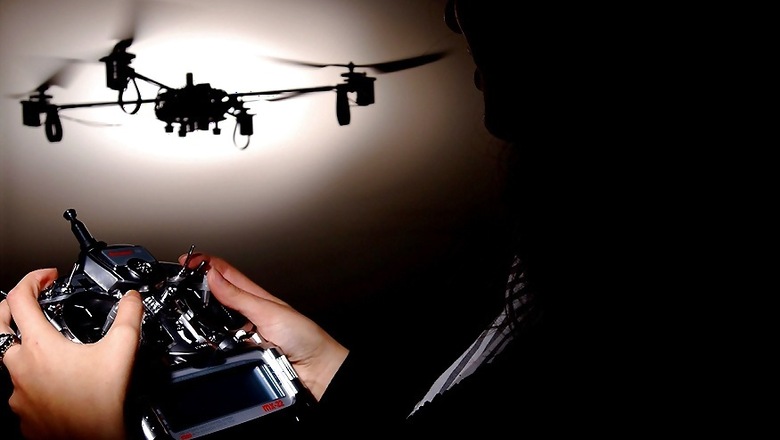
views
New Delhi: Drones or Remotely Piloted Aircraft (RPA) is the latest trend catching onto the imagination of the public. It is estimated that Indians have spent more than Rs 40 crore on civilian drones in 2016-17 alone.
The government, though, seems to be struggling with major gaps in policy to regulate the use of the aircraft, which are, banned in the country.
According to a study by the think-tank, Observer Research Foundation (ORF), ad-hoc measures taken by state and central government have been ineffective as questions of privacy and trespassing, air traffic, terrorist threat management, and legal liability have not been addressed properly.
The Director-General of Civil Aviation (DGCA), India's civil aviation regulator, first issued a notification on the subject on October 7, 2014. Two years later, on April 21, 2016, first drafts of the guidelines were issued for the use of Unmanned Aerial Vehicles (UAVs). After a year-and-a-half of inactivity, the DGCA issued a new set of guidelines in October 2017. A report on Moneycontrol.com says the final proposal may be finalised this month. It was to be done by December 31, 2017.
Despite the current blanket ban on drone use, the aircraft are being widely used. Wedding videographers, in particular, are being selected on the capability to use drones to capture the activities.
According to ORF's research, the 2017 guidelines of the DGCA, despite what the authorities believe, do not seem to be a step in the right direction. Privacy and trespassing, two of the biggest concerns for civilian use of the aircraft, have been more-or-less untouched in the proposal.
Most UAVs have constantly-transmitting cameras that often operate in high definition and have sound recording features. There are also examples of drones being fitted with equipment that jam networks or act as a data recorder, turning it into a tool to spy on someone even if they are in an enclosed space.
The other major concern is the threat of terrorism. A drone could be fitted with explosives to detonate over its target, like ISIS have been doing against Kurdish forces in Iraq. Although current guidelines permit Indian security personnel to shoot down a drone, the aircraft’s speed and surprise element can be used by terrorists to their advantage.
The ORF study also reveals a fresh headache for air traffic controllers as the drones sometimes are too small to track and cannot be communicated with. Various examples, like in 2014 when an Air India flight almost collided with a UAV at Leh airport or when a drone was found hovering 1,500 feet above the runway of IGI airport, have stressed the need for fresh guidelines.
Other than a major overhaul of current equipment and infrastructure available to air traffic controllers, a plan of action in case of any UAV found breaking the rules also need to be formulated.
Globally, US, China, Australia, and Japan are leading the way in formulating guidelines for drone use. The US has by far the most commercial-friendly regulations, while back in 2002 Australia was one of first to come up with the regulatory framework.
US guidelines state that drones weighing above 250 grams must be registered with the Federal Aviation Administration (FAA) and that all users must adhere to the laws of usage while specifying emergency risk mitigation strategies.
While Australia has similar policies as the western superpower, China and Japan deal more with no-go zones than actual regulatory use.
India is grappling with changing times and new technologies. The implementation of a strict policy that deals in and mandatory compliance and addresses key issues, rather than look over them, is the only way forward.


















Comments
0 comment